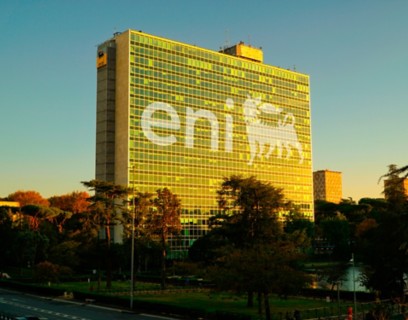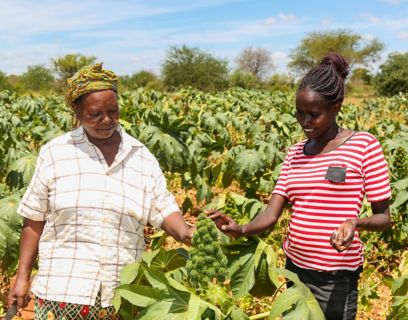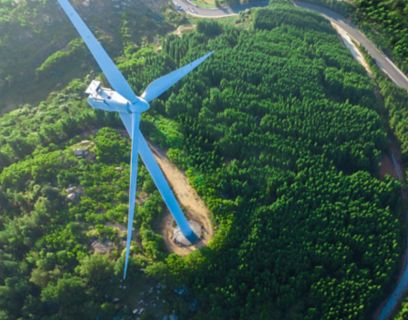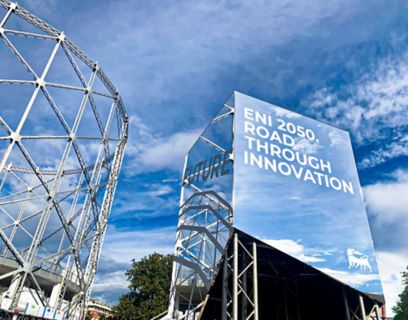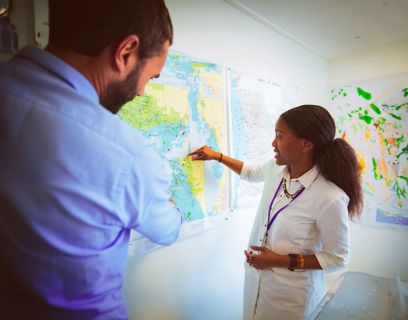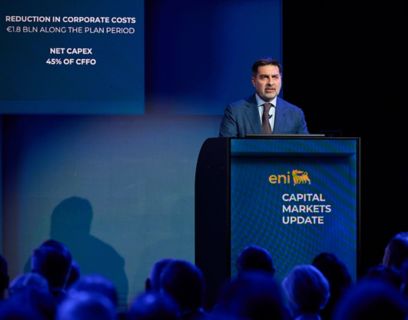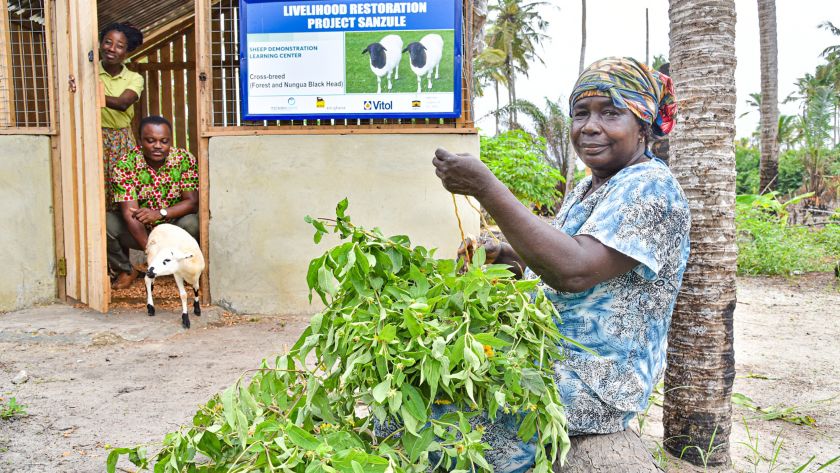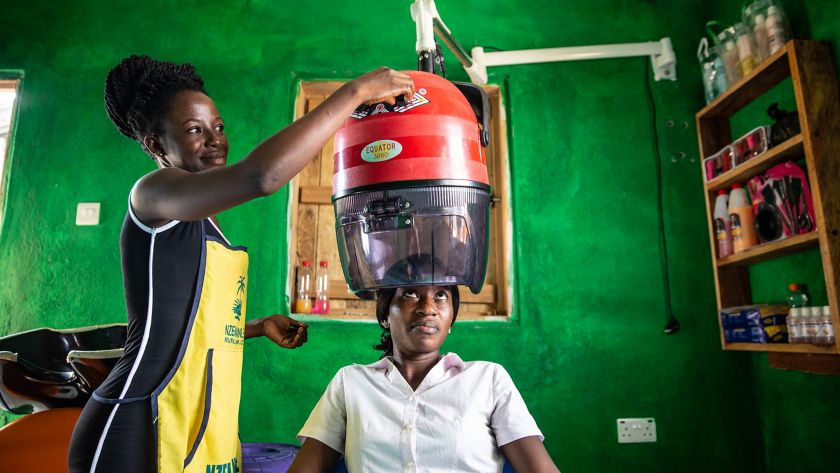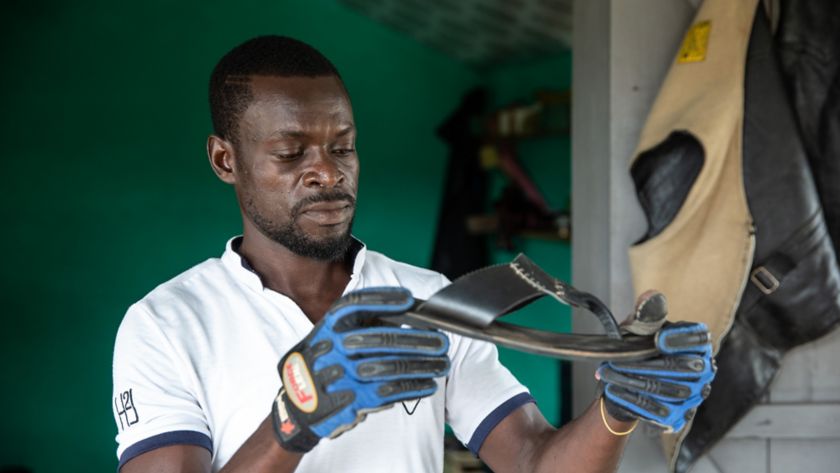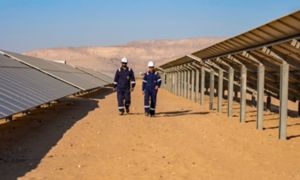MyEni Login
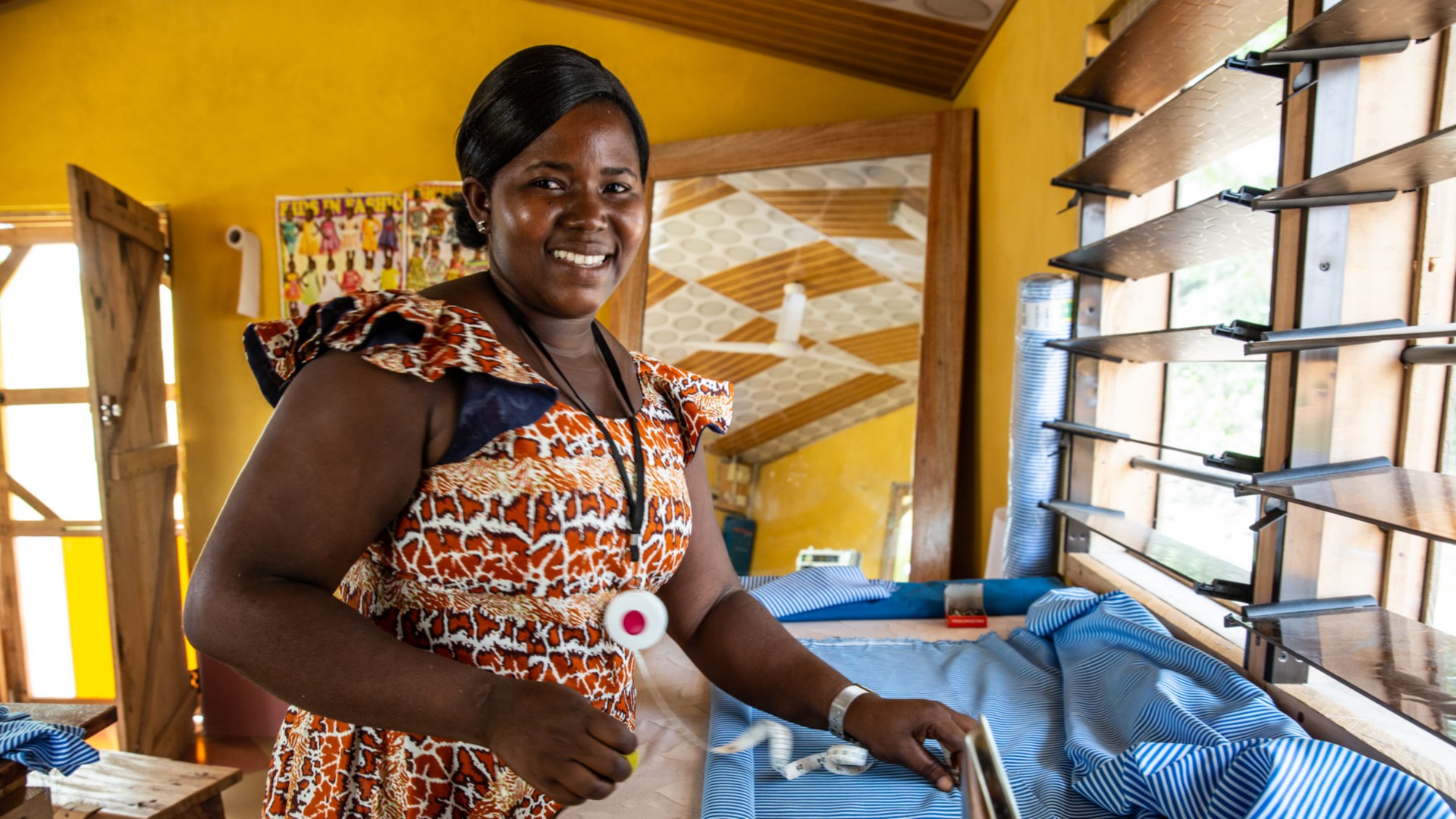
The Livelihood Restoration Plan (LRP) is a project for the promotion and diversification of small economic activities carried out by the local population in and around the Western Region, Ghana. National gas resources in Ghana are a great opportunity to improve access to energy and contribute to the country's economic development. However, to ensure that new energy production activities also produce tangible benefits for the local area and the communities that host them, it is important to create the conditions for them to integrate into the local setting and help create new opportunities for those who live there. After acquiring the land to build the onshore natural gas reception facilities of the Offshore Cape Three Points Project (OCTP), we launched the Livelihood Restoration Plan to manage the socio-economic changes caused by the construction of the plant in that area. Through the launch of small entrepreneurial activities, the project aims to broaden and distribute the benefits for the local communities in terms of income and growth opportunities.
Project features
Activity start date: 2016 – present



SDG1 No Poverty
SDG2 Zero Hunger
SDG 8 Decent work and economic growth
SDG 17 Partnership for the Goals
Project actions and objectives
Livelihood Restoration Plan: enterprises that support development
The Livelihood Restoration Plan project aims to restore and strengthen the livelihoods of the communities in Sanzule and others in neighbouring areas in the Western Region, which are affected by the Offshore Cape Three Points (OCTP) project and the onshore gas reception facilities from the Sankofa field. The area acquired is approximately 96 hectares. In the transitional phase, we provided food support to the families and pursued a financial training programme to ensure proper management of the compensation received as a result of the land acquisition and the activation of new sustainable businesses. In particular, we promote the start-up of agricultural activities, livestock breeding, aquaculture, small businesses and market access.
The Livelihood Restoration Plan is part of a broader plan, the Environmental and Social Action Plan(ESAP), in accordance with international standards, in particular the International Finance Corporation Performance Standard number 5 (IFC PS5). Together with the non-governmental organisation Technoserve, we work closely with the communities through training in business management and mentoring by technical experts.
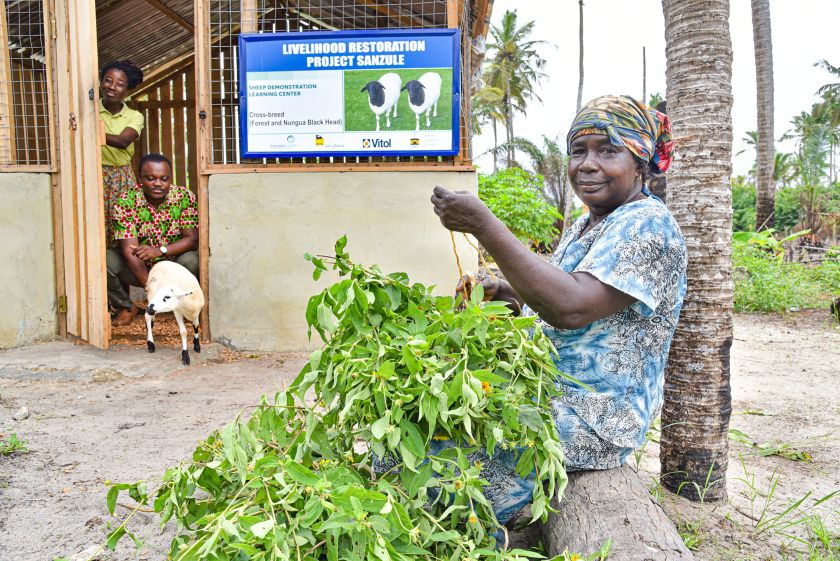
Project beneficiaries
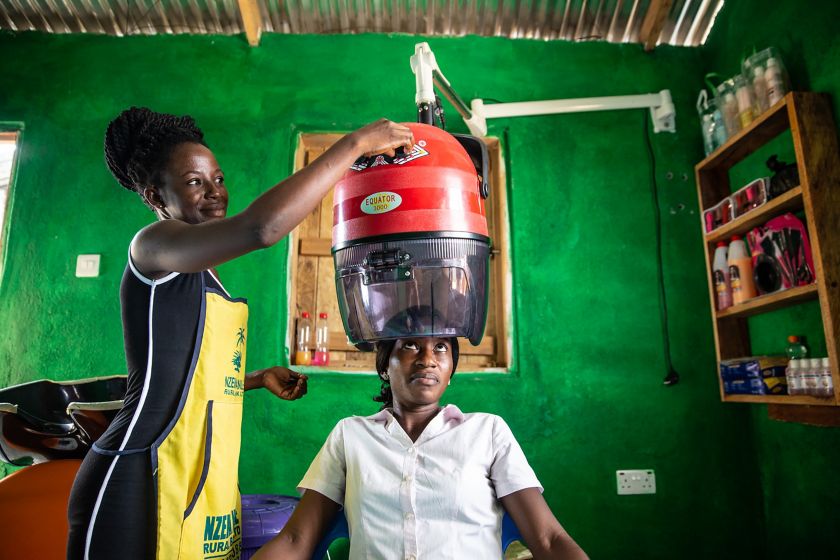
A project beneficiary in her hair salon
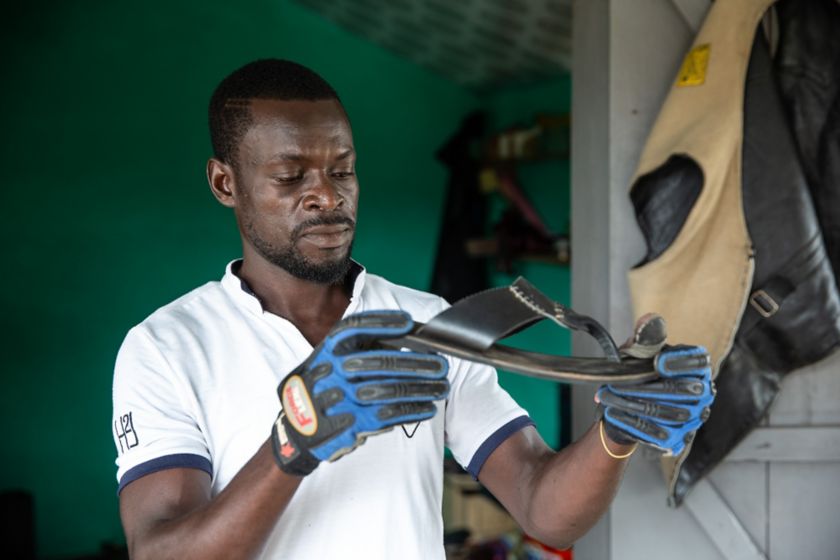
Project beneficiary in his leather workshop
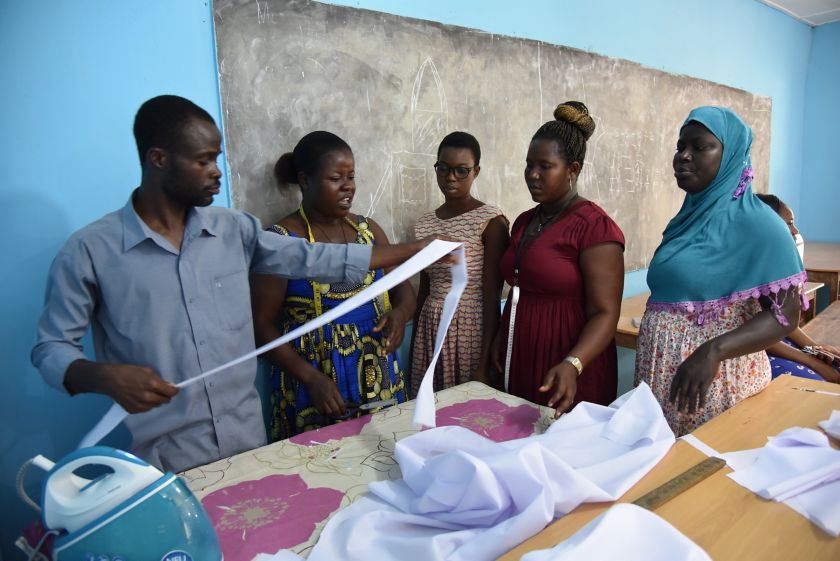
African community during a sewing class
Highlights
invested in the project
benefiting from the LRP
involved in the project
who have chosen to develop aquaculture
invested in the project
benefiting from the LRP
involved in the project
who have chosen to develop aquaculture
Eni for 2022. Our alliances for sustainable development
The solid partnerships we build at a global level ensure that we achieve our goals for a fair and inclusive energy transition.
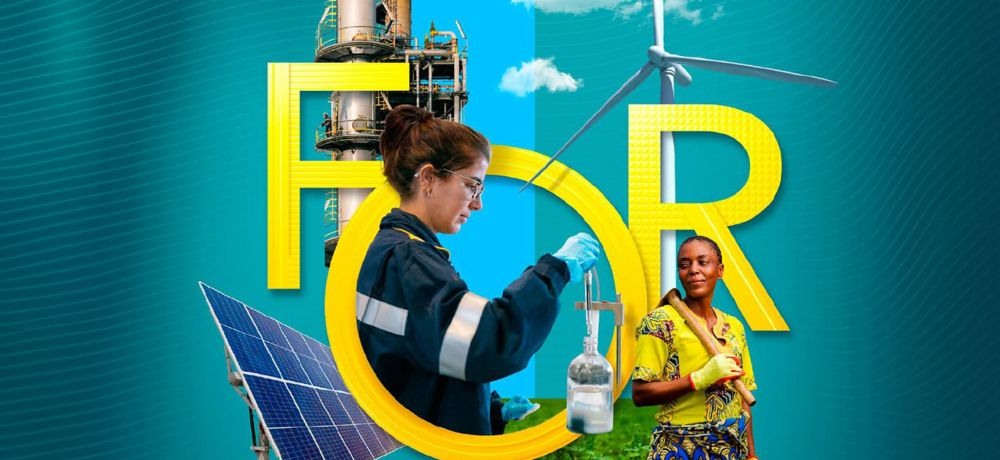
Learn More
Sussana Ackah - Hairdresser | A chance to change
We have done a range of work in Ghana, fostering socio-economic development for the community of Sanzule. In the video you can hear from people whose lives have been improved in a sustainable way, thanks to the Livelihood Restoration Plan project.
16 October 2023
Sabina Adjaby - Baker | A chance to change
We have done a range of work in Ghana, fostering socio-economic development for the community of Sanzule. In the video you can hear from people whose lives have been improved in a sustainable way, thanks to the Livelihood Restoration Plan project.
16 October 2023
Peter Hyeaman - PigFarmer | A chance to change
We have done a range of work in Ghana, fostering socio-economic development for the community of Sanzule. In the video you can hear from people whose lives have been improved in a sustainable way, thanks to the Livelihood Restoration Plan project.
16 October 2023
Eni.com is a digitally designed platform that offers an immediate overview of Eni's activities. It addresses everyone, recounting in a transparent and accessible way the values, commitment and perspectives of a global technology company for the energy transition.
Discover our mission


